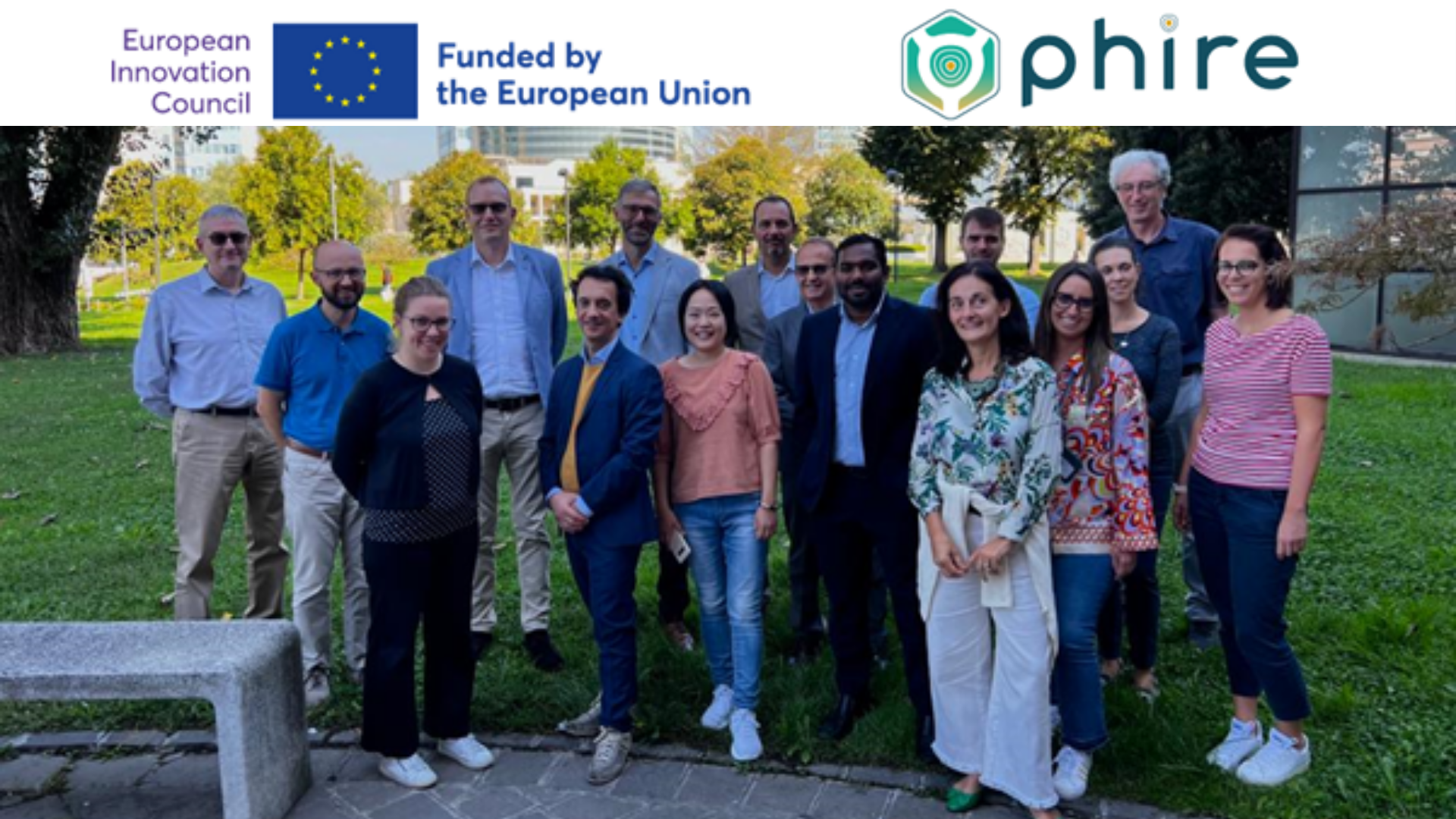We are proud to announce the start of PHIRE project in the framework of the EIC Transition new funding scheme in Horizon Europe. This is the first project of its kind under coordination by OSR led by Massimo Alfano (group leader of Extracellular Microenvironments Unit), as Principal Investigator, from San Raffaele Hospital (Milan, Italy).
The EIC Transition scheme is a new and competitive funding scheme in Horizon Europe with the aim of supporting innovation activities that go beyond experimental proof of principle in the laboratory and to support the maturation and validation of new technologies demonstrated in relevant environment.
It starts with the outcomes obtained from EDIT project, an initiative that proposed transformative technology for the early detection and management of bladder cancer. This time, PHIRE aims to bring close to market a novel high-resolution theranostic medical device effective in the clinical applications for cancer lesions smaller than 1 mm. It will be ready for application in human bladder cancer and effective both in male and female patients.
Bladder cancer is the 10th most common cancer globally, with more than half million new cases every year. At the same time, it is the most expensive cancer to be treated with an expenditure of 9 billion dollars every year. The reason for such high expenditure is due to the fact that the current diagnostic imaging techniques do not allow detection and thus surgical removal of bladder tumor smaller than 1 millimeter, and in particular when they are flat. Second, half of the bladder cancers are resistant to the therapy. Because of these diagnostic and therapeutic limitations about 200.000 patients every year, and for many years after diagnosis, have tumor relapse and undergo multiple surgical and therapeutic interventions.
PHIRE: improving patient’s quality of life while reducing the costs of cancer management
The PHIRE consortium coordinated by San Raffaele Hospital is composed by interdisciplinary partners. Among them, a public university as the University of Bologna, a small-medium enterprise as Ascend Technologies LTD, a company as META Group, and the industrial partner Fujifilm Visualsonics.
META Group will be the partner in charge of exploitation, dissemination, and communication. “Thanks to its long track record and wide experience in exploiting research results and maximizing impact, META Group will ensure that the main solutions developed through the project will be adopted. PHIRE will contribute to reducing the frequency of bladder tumor relapse and the number of patients with relapsing tumors. This will have a drastic positive impact on the quality of life of patients and reduce the social cost of patient management”, said Marco Franchin, META Group’s expert and project manager. Regarding the partners that will work on this initiative, he highlighted “the strengths of the consortium, which is made up of organisations which are leader in their area of expertise, such as Ospedale San Raffaele, the University of Bologna and Fujifilm Sonosite. They have already worked together in previous research projects.”
The future perspectives of this study are the application of the PHIRE platform in clinical trials, to improve the quality of life of patients while reducing the social costs of bladder cancer management.

